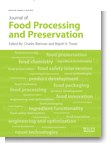So far, we’ve counted more than 300 papers that have been retracted after editors suspected the peer-review process had been compromised — and we’re adding three more to the list.
Editors of the Journal of Food Processing and Preservation became suspicious of the three papers after discovering similarities in reports from supposedly different reviewers. When they were unable to verify the identities of the reviewers, they pulled the papers.
An editor told us that he thinks the reviewer identities were fabricated entirely (as opposed to stolen):
I think reviewers were made up with fake names.
Here’s the retraction notice for “Optimization of Ultrasound-Assisted Extraction of Natural Pigments from Amaranthus tricolor L Leaves:”
The above article, published online on 27 March 2015 in Wiley Online Library (wileyonlinelibrary.com), has been retracted by agreement between the journal Editors in Chief, Charles Brennan and Brijesh K. Tiwari, and Wiley Periodicals, Inc. The retraction has been agreed due to evidence indicating that the peer review of this paper was compromised. It is believed that the paper was accepted based on recommendations from reviewers not suitably qualified.
The paper has been cited three times, according to Thomson Reuters Web of Science.
The text of the notices for the other papers is the same, with the exception of the publication date. All share one author — J. Prakash Maran at the Kongu Engineering College in India.
The other papers are:
- “Optimization of Mass Transfer Parameters during Osmotic Dehydration of Momordica Charantia Slices,” published in October 2015 and has not been cited. Here’s the retraction notice.
- “Multiple Response Analysis and Optimization of Microwave-Assisted Extraction of Antioxidant Phenolic Compounds of Waste Mangifera indica L Peel,” published in December 2015 and has been cited twice. Here’s the retraction notice.
Editor Brijesh Tiwari told us how to problem came to light:
Looking at the reviewers report to the paper which was very similar for all three papers. This raised the suspicion on authenticity of the reviewers.
He told us that they were not able to verify the identity of the reviewers:
The reviewers were not genuine because EIC contacted reviewers and there was no response from the reviewer. Moreover, these reviewers never existed i.e. their affiliation was forged and [their] email address were not associated with any institution.
Tiwari could not confirm which authors (or other parties) were involved in compromising the peer review:
[It] is difficult to establish who did it.
He added advice that we hear often from editors who have had a brush with a peer review scam:
Official affiliation and email address is important and normally we should not select suggested reviewers.
We have reached out to Maran for comment, and will update this post with anything else we learn.
Like Retraction Watch? Consider making a tax-deductible contribution to support our growth. You can also follow us on Twitter, like us on Facebook, add us to your RSS reader, sign up on our homepage for an email every time there’s a new post, or subscribe to our new daily digest. Click here to review our Comments Policy. For a sneak peek at what we’re working on, click here.

Time for journals to stop requesting names of reviewers, and find them on their own. In this age of Google and PubMed, it’s not difficult.
Agree with this view completely. Honest authors are at stake while giving names of genuine reviewers not related/connected to them but real experts in the field. All policies/deviations are being made only to curb the faulty.
Forget the measly term-paper-for-hire industry; sounds like there’s a lucrative career to be had writing fake research reviews…
Like Murphy said, you can’t foolproof anything because fools are so damn ingenious.
It would be nice to know if this was all the author’s personal initiative, or whether there are Indian companies advertising their expertise in this field, comparable to the Chinese ones.
Someone should check these authors’ papers at other journals.
It may be alright to link linkedin/researchgate profies on retractionwatch.com in cases where you don’t find professional webpages such as University/Institution etc where the person is working. In the case being discussed, the two articles in question are linked to Researchgate records. I don’t think it is a good idea to give ResearchGate links why not give pubmed record if it is there. Both Researchgate and linkedin accesses are inherently recorded in the profile of the individual profiles. For article accesses on ResearchGate it is recorded as “reads” whenever someone clicks on the link. Each “read” will be computed in the metrics of that article if at all they are picked up by altmetrics. I started realising how these metrics are used professionally!